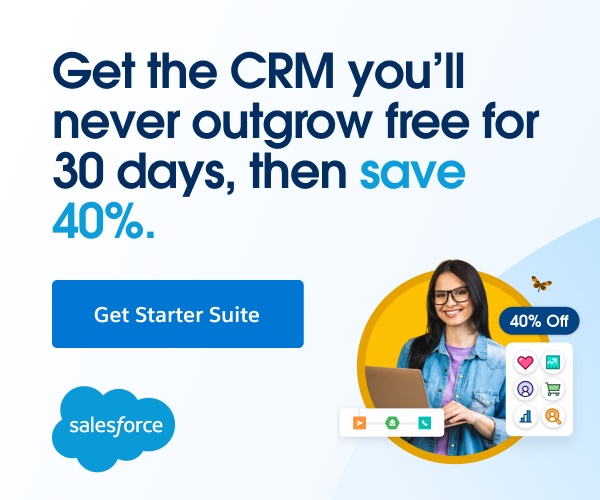This is a lesson most first-time entrepreneurs don’t learn until it happens, but even experienced startup leaders can succumb to the lure of opportunity or the weight of desperation in a way that turns a risk-tolerant strategy into high-risk gambling.
There’s a huge difference between those two paths.
Gambling with your runway
I’m a poker player, I have been my whole life. And while I do most of my poker playing in various casinos, I will state emphatically that what I do isn’t gambling. I’m experienced and I’m a grinder. I have strategies for my play, for who I’m playing against, and for my stake. I have strategies on top of strategies.
High risk gambling is — well, it’s everything else in the casino, but the easiest example to parse is the roulette table. When you bet a single chip on black, you’re taking on a relatively even risk for a relatively even reward. When you bet a stack of chips on a single number, you’re making a high-risk, high reward bet.
But make no mistake, both bets are indeed bets, and both are devoid of strategy. You have no influence over the outcome.
Why chase incremental gains?
I get a lot of pushback on my “slow-and-steady-wins-the-race” approach to startup.
“But startup is about high risk! High reward! High tech! High growth! It’s about moving fast and breaking stuff! It’s about apologising after instead of asking permission first!”
It isn’t. There’s a distinction. It’s subtle, but it’s important.
My approach to entrepreneurism is about moving fast and breaking stuff and all those other things.
Starting and building a company, however, is not that. It’s the result of that. If you take an extreme energy and release it with no plan, no direction, and no control, you get an explosion that disperses the energy quickly and does a lot of damage. If you harness that same energy, those explosions can safely implode entire buildings.
Or launch rockets.
That’s what we’re building with a startup. A rocket, not a bomb.
We chase incremental gains because they’re reachable, they’re sustainable, and they stack nicely. When you stack enough of them quickly, there’s no limit to the energy you can release.
Why not chase the big wins?
With every big win, no matter how carefully planned or how big the payoff, there's always a large element of luck involved. You never chase luck. You hope for it, you even bet on it, but you don't build a company around it.
Unless you’re building a casino, but then you’re really just using math to beat luck.
However, let me also make it clear that when I’m in a casino playing poker, I’m known to sneak off to the roulette table for a few minutes.
Windfalls happen. People get lucky. Startups get lucky. So yes, you position your company into a place where you can exploit any windfall that comes your way. You leave yourself open to the opportunity to have a big break fall into your lap. You make a mission out of dropping unicorn breadcrumbs like single chips on a roulette table.
But you let the wheel spin one time and then you walk away. Because once a gambler starts piling up losses on those single chip bets on black (and they will), the only way to recover is to start making riskier and, frankly, dumber bets on single numbers with much higher payouts and much higher risk. Then they start stacking chips on those high-risk bets. Then they run out of chips.
Stack gains with a dedicated but flexible plan
Stacking starts with customer acquisition. You can build a huge social media following, get tons of gushing press, onboard thousands of free trial users, but you might never secure those customers.
The results of windfalls are usually fleeting, and like an explosion, debris scatters everywhere and quickly falls out of reach. The people who explode to your website are fans, they’re eyeballs, they’re an audience.
Unless you have a funnel to not only catch these fans and eyeballs, but also convert them to paying, loyal, happy customers, then they’ll act like debris, and just wind up being useless, if not harmful.
You can’t just throw any old funnel into position and cross your fingers. The funnel is a set of plans, from transaction to fullfillment to support, and it needs to be tested in a controlled manner, using small groups of customers, and stress testing each part of the funnel to prove that it works and it will scale.
My plans are flexible. My systems are built such that my focus is on incremental gains and serving those customers. But if I have to suddenly transact and onboard and maintain and support hundreds of new customers, I can.
I chase the big gambling wins with partnerships, press outreach, viral events, and marketing programs, but I don’t break my system to conform to the rules of whatever game I’m playing.
My system is dedicated — it works the way it works. I will bend over backwards to make that system work for a partner, or conform to a story for the press, or precipitate a viral event, but I won’t change what it is: the pricing, the model, the offering, the funnel, to serve a partnership or article or marketing program that doesn’t make sense.
And make no mistake, the windfall method can be just as fleeting as the result. Partners and journalists and even investors might show a lot of interest in your company up front. Then, more often than not, they’ll find another shiny new thing and go dark. This is fine, unless you’re spending all your time and money and effort building to windfall events that never materialise.
Use your gains like compound interest
You know who else usually ends up broke at the end of the ride? Day traders.
When you’re an investor, you’re building a well-planned portfolio and stacking the returns. Over time, your incremental gains produce enough compound interest to hit those numbers that day traders chase.
Startup is full of ten-year-overnight-successes, companies who have built on their incremental gains over time like compound interest. They’re investors, not the day traders you hear about who buy penny stocks and hit on that one big life-changing win that makes for a great story.
Because for every story like that, there are thousands more day traders who have gone broke playing pump-and-dump schemes or falling for straight-up con artist digital currency scams.
Here’s the twist ending: Don’t think too small
I mentioned before that I’ll throw a chip or two on the roulette table every so often. And I’ll tell you that almost every ten-year-overnight-success startup has taken a high-risk gamble or two that paid off.
So remember to balance. If you think too small all the time, you’ll miss your moonshot. You should always have irons in the fire for big gains, and plans for those big gains once they materialize.
Just don’t substitute gambling for a growth strategy, and know when it’s time to walk away and get back to grinding.
This article was originally published on Medium by Joe Procopio
Joe Procopio is a multi-exit, multi-failure entrepreneur. In 2015, he sold Automated Insights to Vista Equity Partners. In 2013, he sold ExitEvent to Capitol Broadcasting. Before that, he built Intrepid Media, the first social network for writers. You can read more and sign up for his newsletter at www.joeprocopio.com
If you want more direct advice and answers, look into Teaching Startup.











